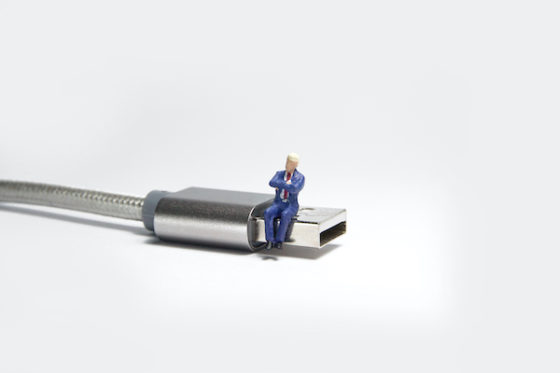Partner content
It’s time to think about your tax return, and this is what you should look out for


The 2021 tax season officially began on March 1 and 8.3 million people will have to file their tax return in the next two months. This year, the tax office is warning people to be extra careful, thanks to the impact of coronavirus.
This year, millions of people will get a tax return which the tax office has already partly filled in. After all, details about your salary, childcare benefits and other regular payments are already in the system.
However, the coronavirus pandemic may have changed your personal circumstance during the year, and that could mean the information the tax office already has about you is incorrect. Here are a number of things you should check carefully.
Your mortgage
If you bought a house last year, some of the costs associated with your mortgage, such as notary fees and the premium you paid for your mortgage advice, may be tax deductible, so you could be entitled to a refund.
Mortgage interest payments are also deductible up to a certain level. However, if you have paused your interest payments last year – because your income had been cut by coronavirus – you will need to be extra vigilant.
Double check if the pre-filled information aligns with the annual overview of your mortgage, and ask a tax advisor if you are not sure. If you have not made some payments, you won’t be entitled to the full automatic tax refund.
Support measures
Did you have a flexible employment contract last year and applied for government help (Tofa) because your income had been hard hit or dried up altogether? Or are you self employed and applied for help under the Tozo ruling? That too will have an impact on your tax return.
So check if all the support measures that apply in your case were taken into account by the tax office on the pre-filled form. This is important to check because you also need to pay taxes over the financial support, which in most cases will be taxed as income.
Other forms of support for small firms, such as the TVL and TOGs rulings for small firms are not classed as income.
1225-hour criteria
There are several self-employed tax deductions and an important one is the self-employment rebate. This rebate excludes you from paying taxes over a set amount, if you have worked for at least 1,225 hours in the relevant tax year. You can apply this deduction for a maximum of three years in the first five that you have been self employed.
This year, of course, many self-employed people have worked fewer hours because of coronavirus. But don’t worry. The tax office has decided that it will not not enforce the 1,225 hour criteria, as a boost to the self employed.
Early deadline
Usually you have to file your taxes by May 1, but this year the tax office has extended that to May 8 because of computer issues in the first few days of March.
But there is also an early deadline of April 8 – usually April 1 but delayed because of the IT problems. This means if you file your income tax return before April 8, the tax office promises you will find out how much extra you have to pay, or what your rebate will be, before July 1.
Delaying your tax return
If you are not sure if you are able to file your income tax return before the deadline you can ask for a postponement. You can contact the tax office’s English language hotline (+31 555 385 385) about this, or ask your tax advisor to do it for you.
Of course, other changes to the tax regime came into effect this year as well, such as changes to income tax, property transfer tax and taxes on assets. You can find a complete summary here.
For more information contact Blue Umbrella per email (info@blueumbrella.nl) or ring +31 (0) 20 4687560.
Thank you for donating to DutchNews.nl.
We could not provide the Dutch News service, and keep it free of charge, without the generous support of our readers. Your donations allow us to report on issues you tell us matter, and provide you with a summary of the most important Dutch news each day.
Make a donation